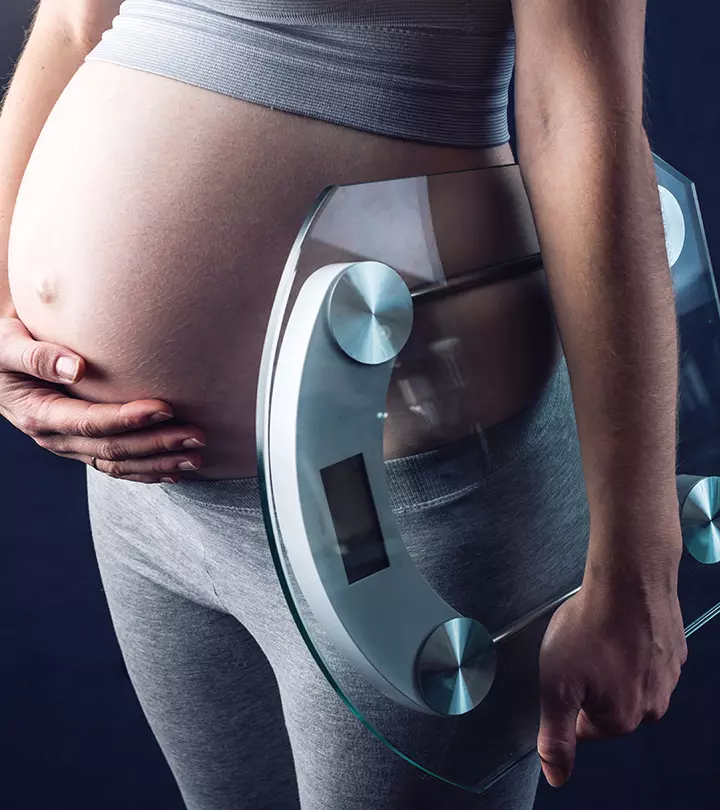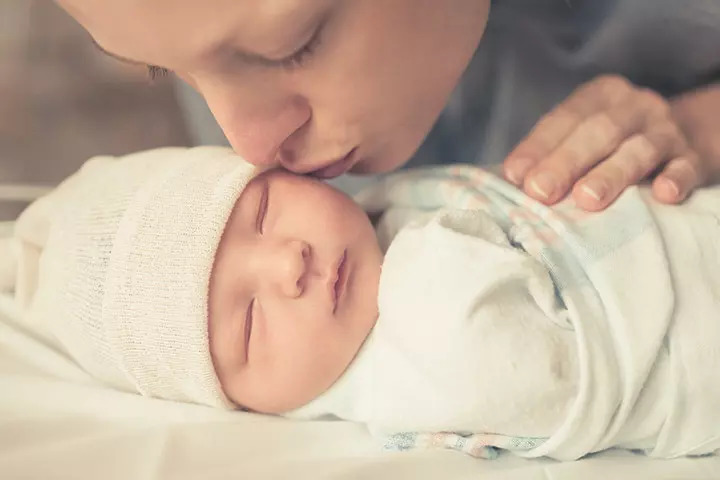
Image: Shutterstock
The journey of pregnancy can make for a good case of curiosity. Why, you ask? This is because from the moment you announce the “good news”, it creates room for a lot of speculation. It’s like starting a guessing game of sorts for your family and friends. They start deriving assumptions and possible conclusions about the gender of your baby. From old wives’ tales to questions about the gender reveal through ultrasound, curiosity gets the better of them until the time you deliver. And then, your pregnancy weight gain is another aspect of pregnancy that comes under the scanner. Maybe it’s your genes. No wait, it must be the hormones. Or maybe… etc, etc. You got the idea, right? Now, imagine how this bunch of inquisitive people around you would react if we suggested that your pregnancy weight-gain could hint toward the gender of your unborn baby? Surprising, isn’t it? Well, so were we when we came across a study that suggested this.
Pregnancy Weight-Gain And Baby’s Gender: What The Study Says
For this study, birth data of a whopping 68 million births were collected over 23 years. This data was then analyzed for any relationship between gestational weight-gain and natal gender ratio. It was also analyzed for a relationship between gender ratios of fetal deaths (five gestational ages) and the analysis was carried out across four different races.
The analysis revealed some surprising facts. It showed a positive correlation between the proportion of male births and gestational weight gain. Women who gained less weight during their pregnancy produced a lower proportion of males. And this strong pattern was noticed across the four different races that were included in the study. Further during the study, it was found that the gender ratio of fetal losses at 6 months of pregnancy was very significantly biased toward the male fetuses in cases where the expectant mothers gained low amounts of weight during pregnancy. This strongly suggests that low-calorie intake during the early stage of fetal development can trigger the loss of the male fetus. The conclusion of the study, according to the available data, was that human gender ratios can be influenced by the availability of resources. Meaning a gender-biased fetal loss can occur if the expectant mother does not receive adequate nutrition. And the most pivotal time to receive adequate calorie-specific resource is the early stages of fetal development, that is at 6 months of the gestational period (1).
But why does low weight gain during the early 6 months of pregnancy result in a fatal loss of only the male fetus? Why doesn’t it affect female fetuses? What could be the reasoning behind the findings of this study? It sure is really hard to exactly pinpoint the real cause behind this correlation between the pregnancy weight-gain (or lack of it) and male babies. However, if we were to just go with the findings of the study, it would simply mean that you’ll need to ensure a good amount of nutrition during the first 6 months of gestation. Could this mean that excessive weight gain during pregnancy will lead to a male child? Who knows? But at least, sufficient nutrition could prevent fetal loss if your baby happens to be a male.
Performing studies on pregnant women and pregnancy can be really hard. Each pregnancy is different and so is every child. Yet, researchers try their best to come up with ways to help pregnant women and the newborns get a shot at a good life. This study too tries to find a correlation between weight gain and the loss of male fetuses in the first 6 months of the gestational period. It may not be able to conclusively tell you whether you’ll have a male baby or not if you gained a significant amount of weight during pregnancy. However, it sure does highlight the importance of healthy weight-gain and calorie-intake during the first 6 months of pregnancy to prevent fetal loss.















